Inside: Help your kids be more thoughtful and considerate by using these two strategies to help kids be less self-centered. It will allow them to be kind, and avoid intentionally and unintentionally hurt people’s feelings.
I took one of my kids out to get a special treat on a date.
It was one of our most favorite ways to connect, to build up our strong family identity.
And it’s a proof of love activity.
But as soon as we walked back in the door, my kiddo just had to announce to their other two siblings exactly what they got during our time together.
Which of course was followed with whines of “that’s not fair.”
My kid, who had announced their treats, wasn’t being mean or unkind.
But they were being thoughtless and inconsiderate.
They didn’t stop to wonder how their words would make their siblings feel.
And these kinds of thoughtless moments happen often, especially for kids.
But we can purposefully teach kids to be more thoughtful and considerate when we teach them to think before they speak.
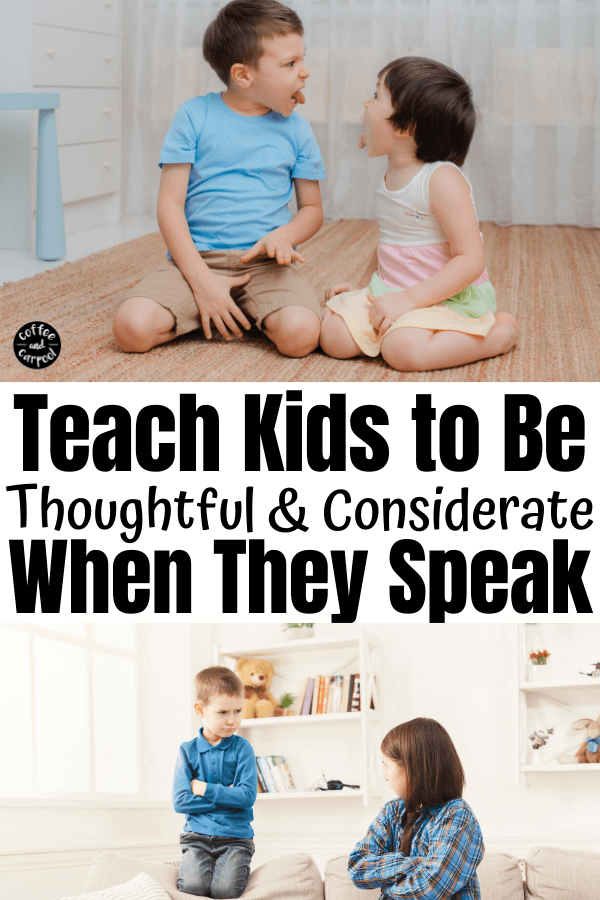
Why kids are often thoughtless
Our kids are scientifically wired to be self-centered.
Their brains aren’t ready yet to put themselves in other people’s shoes.
They live in a me-centered bubble, at no fault of their own.
But we can start to teach them to be more thoughtful and considerate of everyone around them.
We can teach them their words can affect people.
And we can explain to our kids why being thoughtful about what we say is a way to show kindness to those around them.
Being thoughtful and mindful of others will avoid them accidentally or purposefully hurting someone’s feelings.
How to Help Kids Be More Thoughtful and Considerate
We are raising our kids to be kind.
Related: What parents need to know to raise kind kids
We talk about kindness with these 60 kindness discussion starters, we make kindness crafts like Kindness rocks and kindness keychains, and we read kindness books.
And we intentionally help our kids learn to be all the different kinds of kind. How to be:
- grateful,
- a good teammate,
- an includer,
- mindful of others,
- helpful,
- a good friend
- funny without being mean
But we also have to intentionally teach kids to not hurt people’s feelings on accident or on purpose. To do that, we use these 2 strategies.

1. Ask or state feelings
When my kids do or say something thoughtless, I take that opportunity to build up their emotional intelligence and put themselves in someone else’s shoes.
Related: 9 Ways to Raise Emotionally Intelligent Children
Sometimes I ask them: How would that make you feel?
Or I offer them a choice: Would that make you feel happy or sad?
And sometimes I simply tell them: That would make you sad. Or, That would hurt your feelings. Or, If she said that to you, you would be very disappointed.
Simply calling attention to the action and how they would feel if it happened to them encourages them to pause and evaluate their actions.
It helps them stop and put themselves in other people’s shoes more often and be more compassionate.
It helps them step out of their me-centered, self-centered minds.
2. THINK
But what really turned it around for my kids was asking them to stop and THINK.
As a parent, we have to pick our battles.
But when I hear unkind words, we pause everything.
I turn it into a teachable moment because kindness is essential to a calm, happy, and more peaceful home.
So when I hear my kids teasing or name-calling or saying a thoughtless comment, I ask them these to evaluate what they said with these questions:
T- Is it True?
H- Is it Helpful?
I – Is it Inspiring?
N is it Necessary?
K- Is it Kind?
Does the THINK Poster work to help kids be more thoughtful and considerate?
When my kiddo bounded in the door announcing their special treat, I pulled them over and asked them to THINK.
Is it true? Yes it is. They did get treats.
Is it helpful? No, it’s not helpful. That information helps no one.
Is it inspiring? No, not really. It doesn’t inspire their siblings at all. In fact, it feels crummy to know you didn’t get treats.
Is it necessary? Definitely not necessary.
Is it kind? No, it’s not kind to tell others what you got when they didn’t get it.
After going through the list, my kiddo looked over at her siblings, and said, “I’m sorry. I shouldn’t have bragged I got treats. I didn’t mean to hurt your feelings.”
When we pause to evaluate what we say and determine if we should have said it, over time our kids will start to think before they speak.
Before they walk in the door and announce their special treats, maybe, just maybe next time they won’t. Instead, maybe they’ll tell their dad quietly what they got rather than unintentionally hurting their siblings’ feelings.
But this level of thoughtfulness and consideration doesn’t happen overnight or after one discussion.
In order for this to work, this message has to be on repeat and we have to consistently and constantly remind them.
So we have this THINK poster hanging on our refrigerator and hanging in the hallway between my kids’ bedrooms…two places where they see it most often.
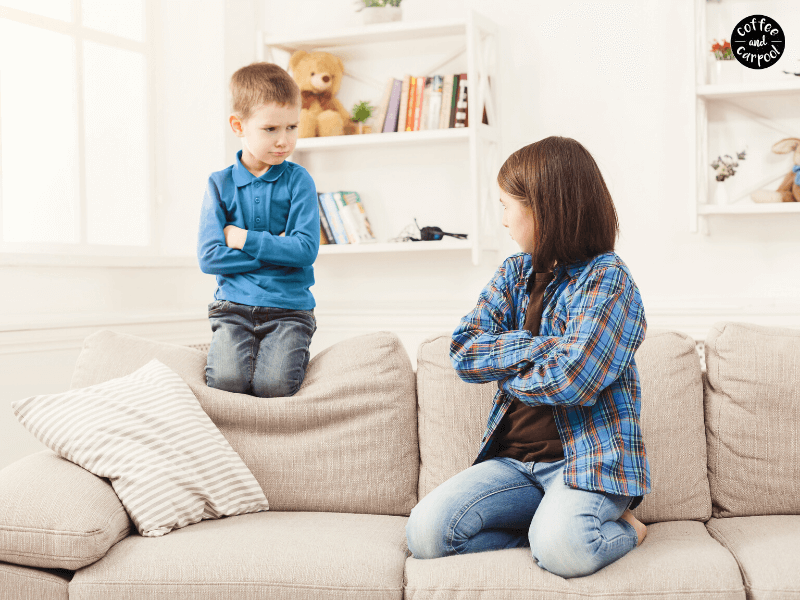
That way we can constantly remind them.
We remind them after they say something unkind to evaluate what they said using the THINK Method.
And we remind them when we can see they’re trying to think of a comeback to a sibling’s unkind words.
Related: How to Teach Kids to Be Mad without Being Mean Back
With these reminders, our kids will eventually not need to evaluate what they say after they say something thoughtlessly.
They’ll stop themselves before they say something and evaluate it before they have to apologize or make amends.
Because they’ll know to THINK first, then speak.
They’ll know that it won’t feel good to hear what they were about to say.
And they’ll know if they don’t have anything kind to say, they need to be quiet.

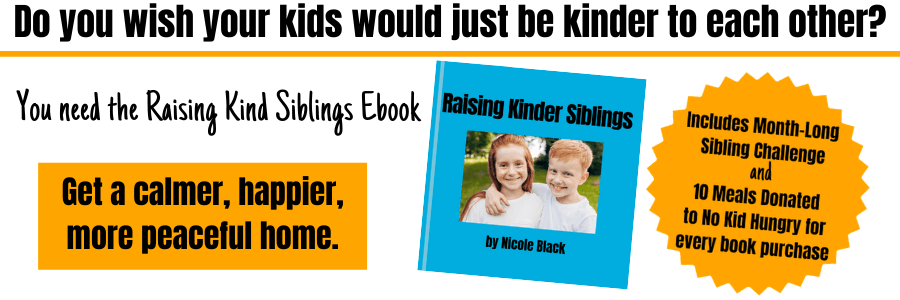
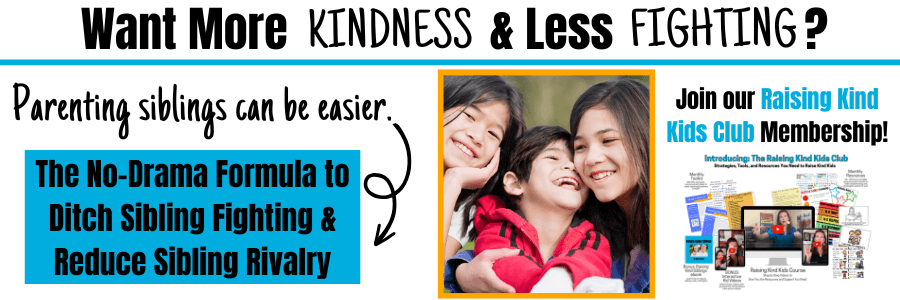
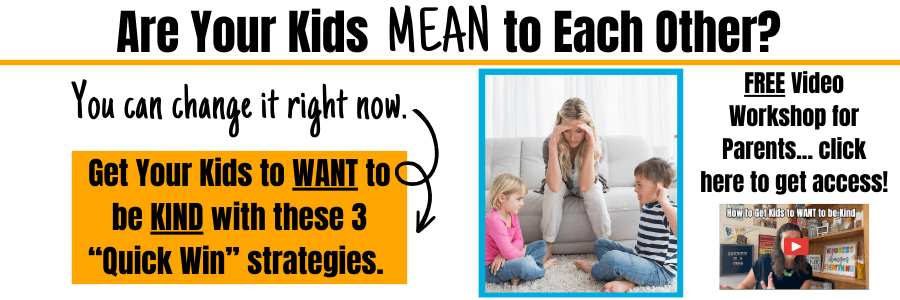
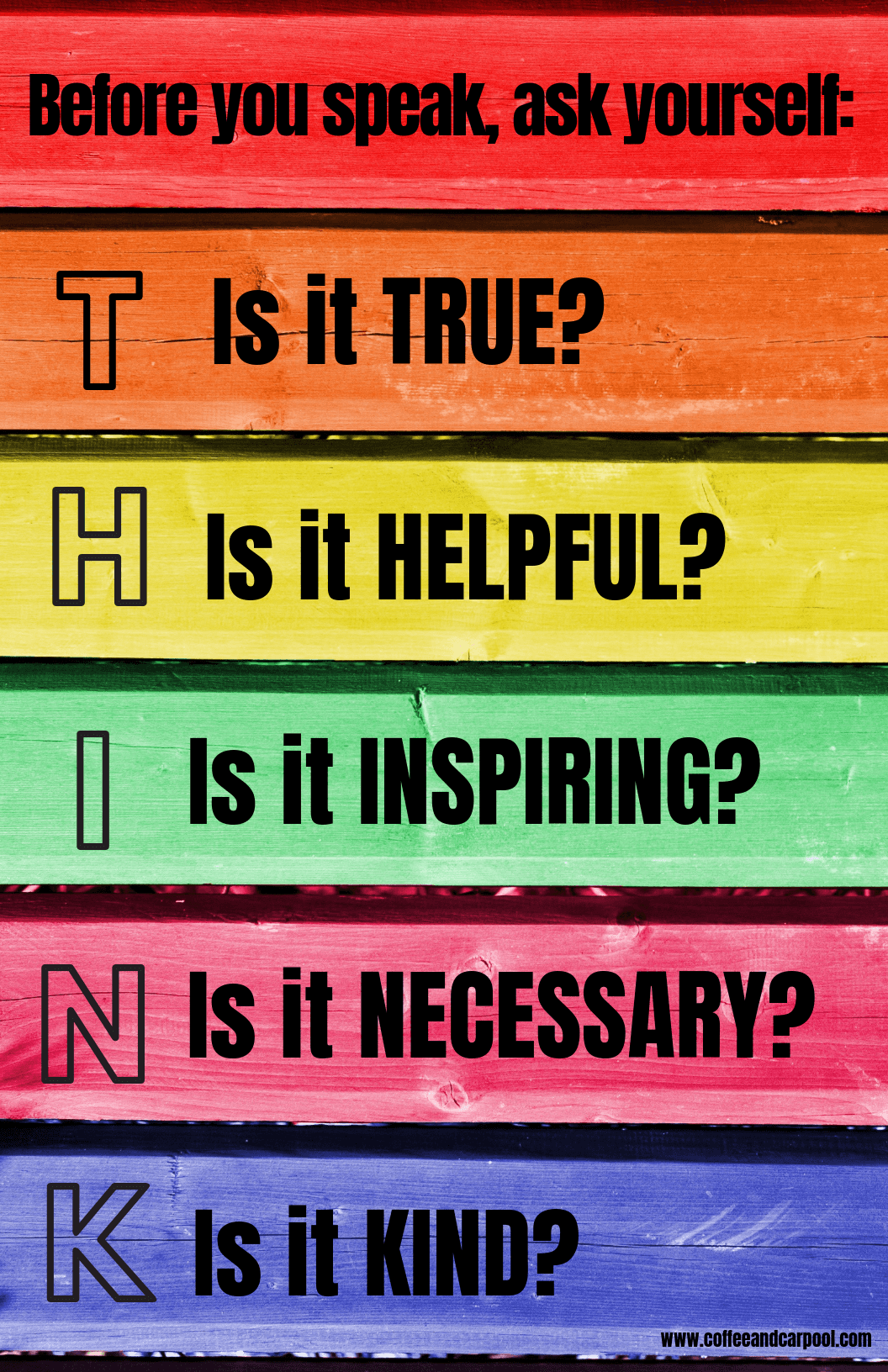
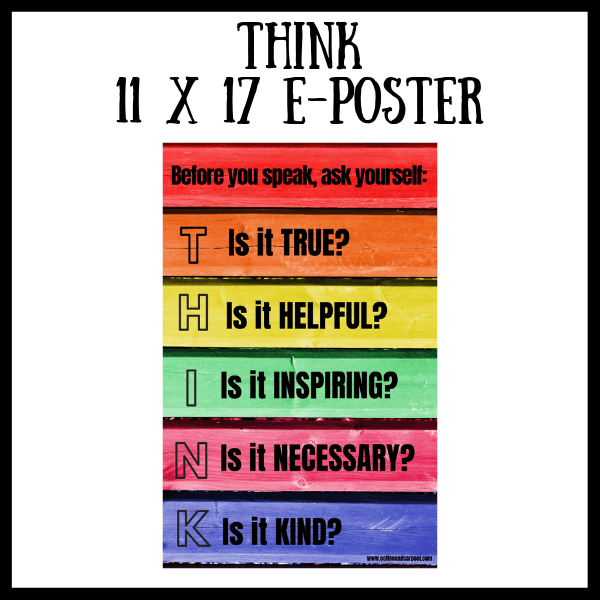
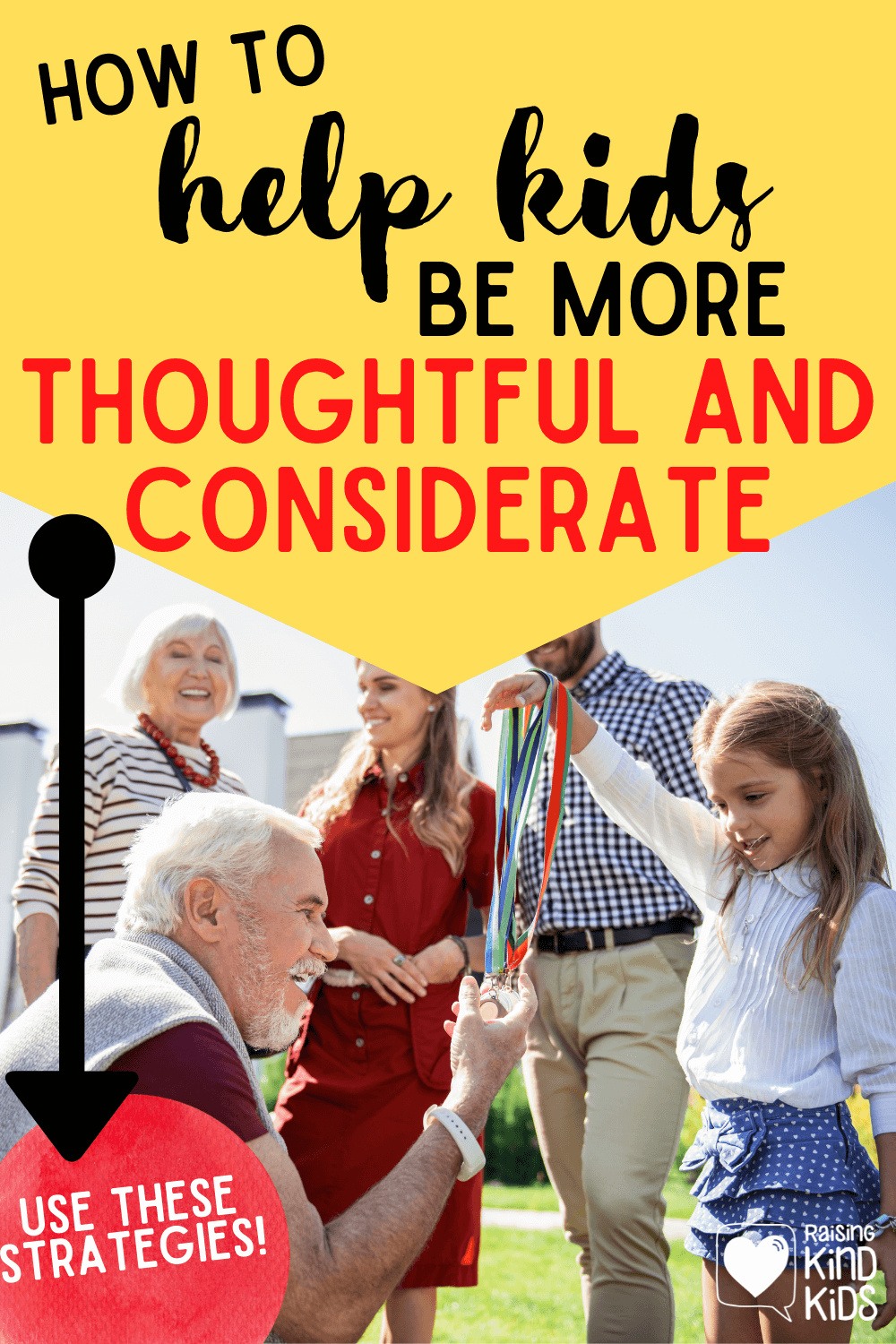
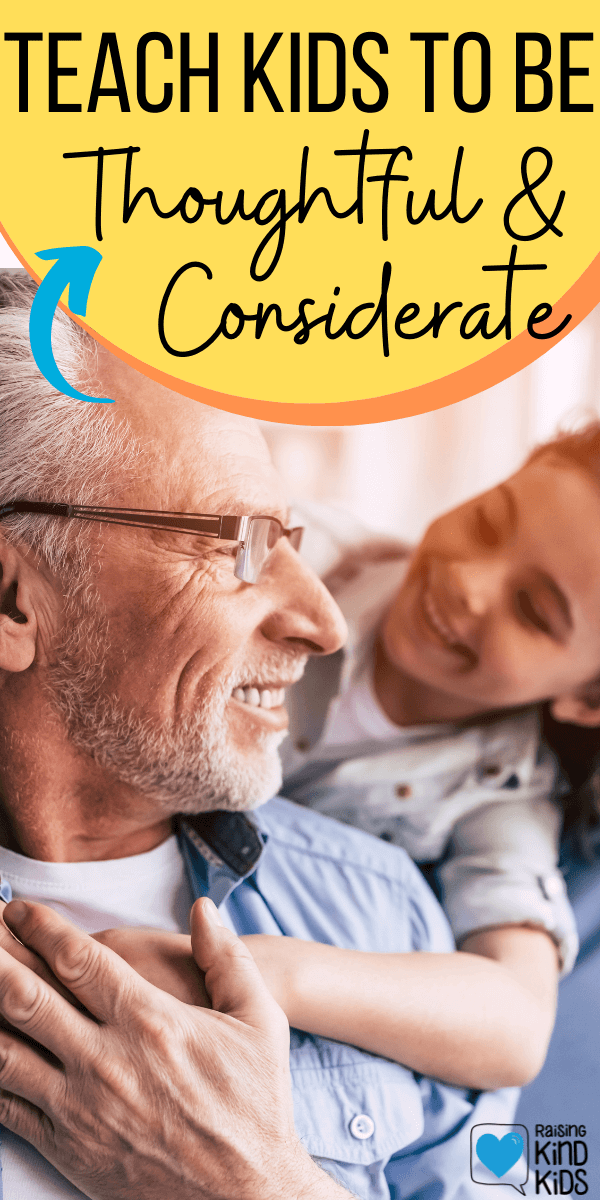
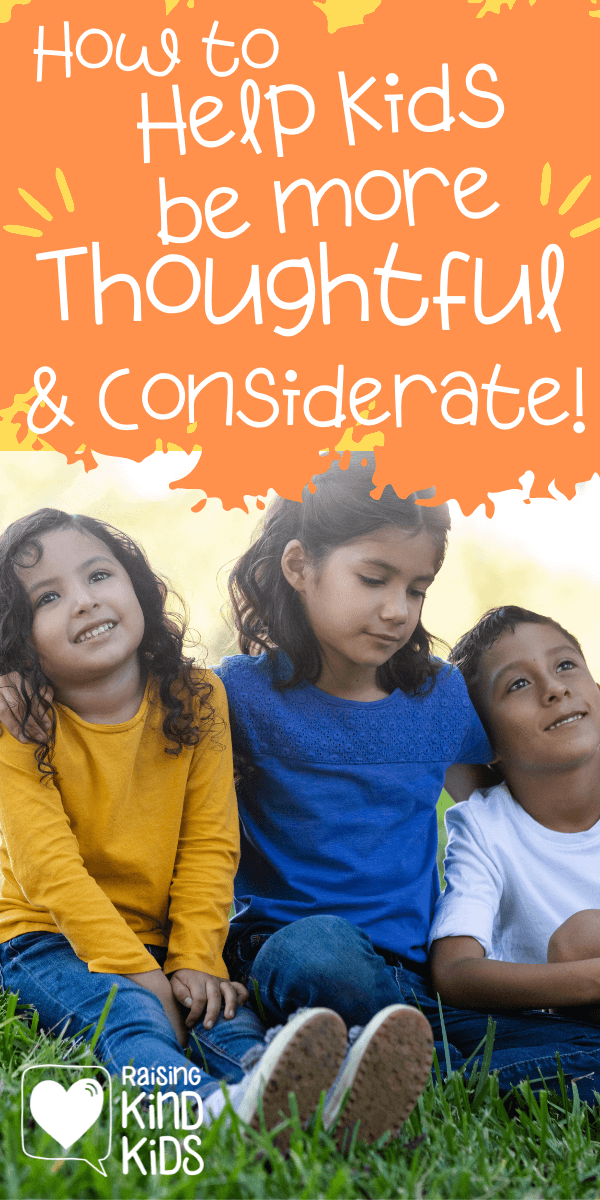
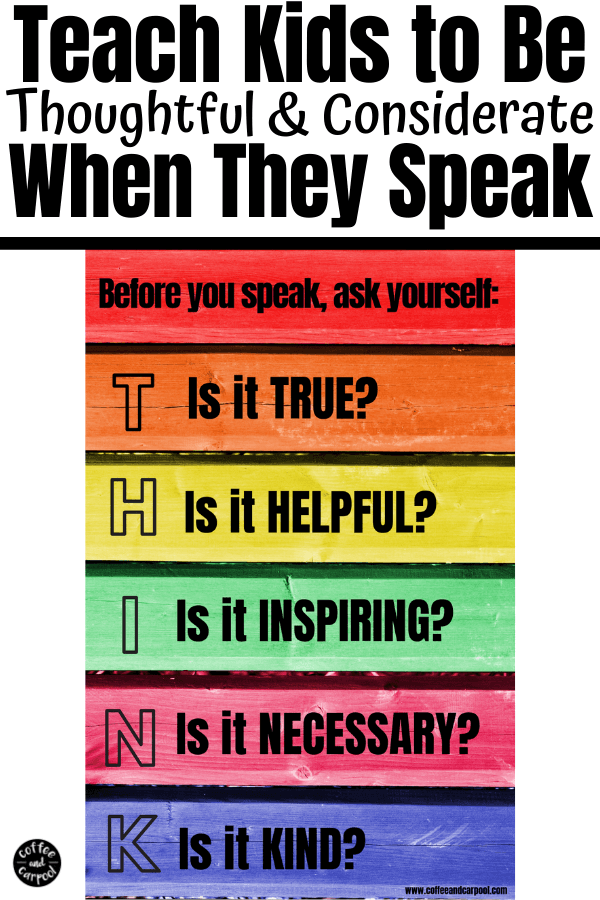
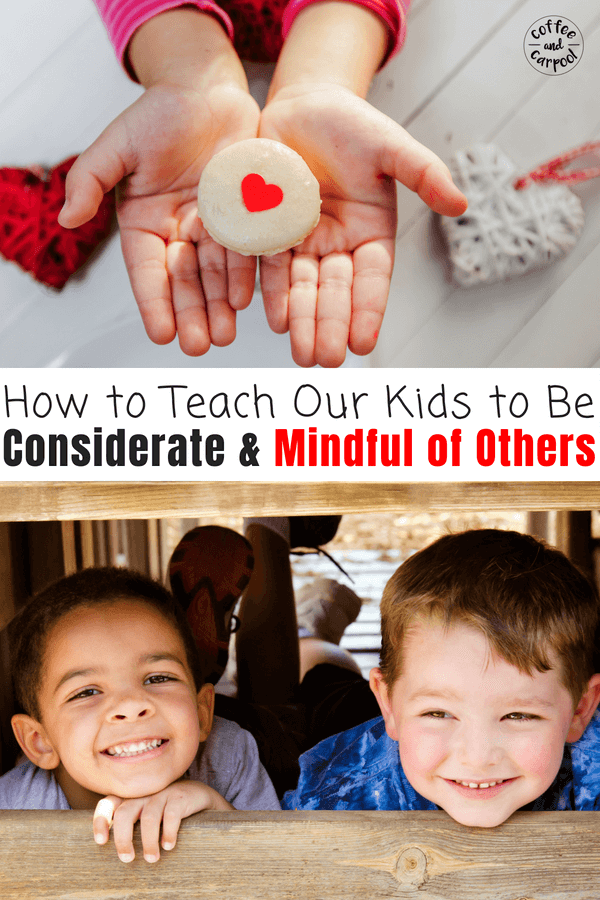
Leave a Reply